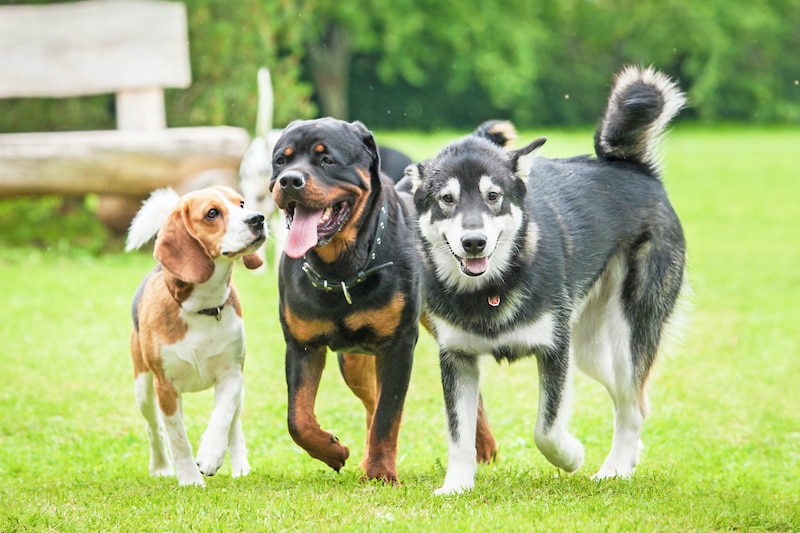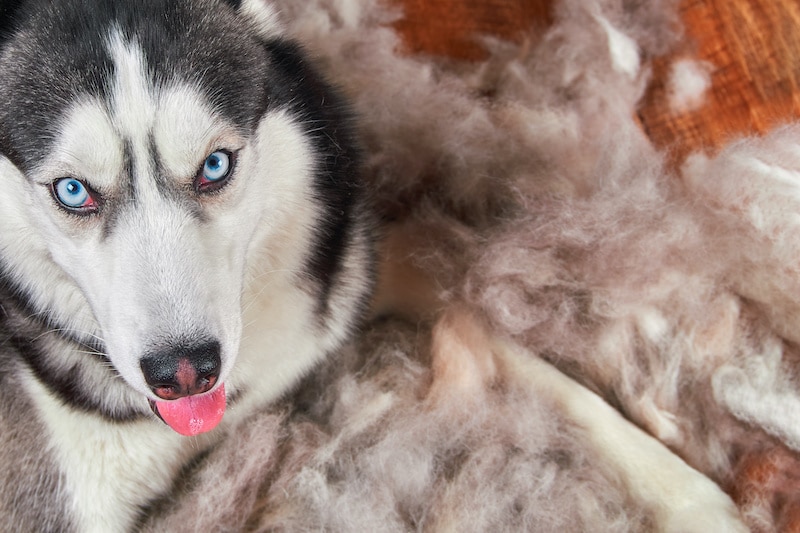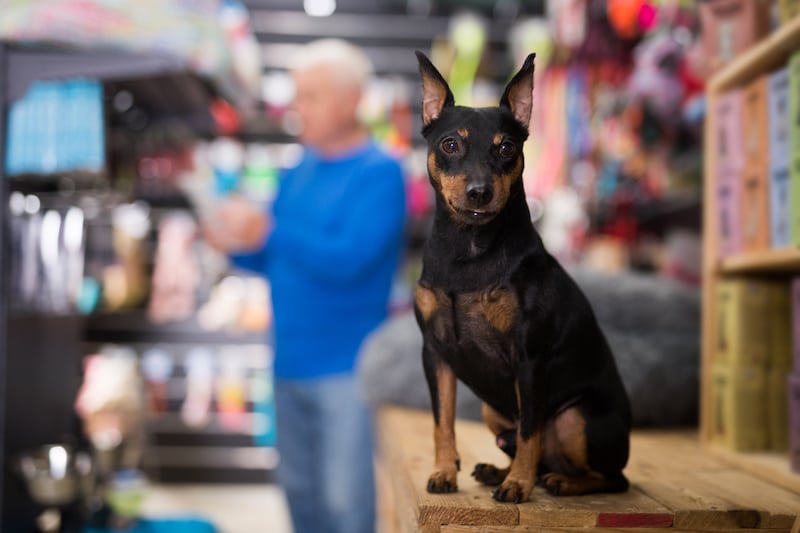Love it or hate it, most dogs shed and bark.
It’s just what they do. But thankfully, some breeds shed very little hair, and some are generally more quiet than others, and on this page we show you which breeds excel in both areas.
Here are 12 of the most quiet, lowest shedding breeds:
- Basenji
- Saluki
- Whippet
- Soft Coated Wheaten Terrier
- Bichon Frise
- Afghan Hound
- Rhodesian Ridgeback
- Italian Greyhound
- Chinese Shar-Pei
- Boston Terrier
- Irish Water Spaniel
- Cavalier King Charles Spaniel
Let's take a closer look at each breed in terms of how much they shed, what they're like to groom and how likely they are to bark compared with the average breed.
1. Basenji

Basenjis are small, mighty dogs that were originally bred as hunters in Africa. They have short, single coats that are easy to groom, shed very little hair, and are generally considered to be hypoallergenic, so they may be more suitable for allergy sufferers. What's more, they aren't prone to barking. In fact, they're often referred to as the "barkless dog," which makes them the ideal small, low shedding, quiet breed [...learn more]. |
2. Saluki

Salukis are tall, elegant and somewhat aloof companions that were once used by nomadic tribes to chase down prey. They have short, easy-to-groom coats that don't shed much, and they're not prone to excessive barking given their quiet, somewhat reserved nature [...learn more]. |
3. Whippet

Whippets are small sighthounds that in some respects are a smaller version of the Greyhound. They're low shedding, super easy to groom, and are considered to be quiet, clam dogs provided they get adequate exercise and stimulation on a regular basis [...learn more]. |
4. Soft Coated Wheaten Terrier

The Soft Coated Wheaten Terrier is a playful, loving, energetic terrier that was originally bred as a farm dog in Ireland. They're not heavy barkers and they don't shed much fur. But their wavy, silky coat does take a little more effort to groom than the average breed [...learn more]. |
5. Bichon Frise

The Bichon Frise is a small dog that's full of personality and charm. He has a beautifully white, puffy coat that sheds very little, but that is quite high maintenance. Either way, the Bichon is a quiet breed that isn't prone to excessive barking, and is well suited to apartment living [...learn more]. |
6. Afghan Hound

Afghan Hounds are large dogs with long, flowing coats and a calm, aloof demeanour. And they're not just glamour dogs either. They're actually one of the oldest breeds known to man, and were bred to hunt game across the mountainous regions of Afghanistan before making their way into the western world. They do have quite high maintenance coats, but they don't shed much and are known to be quiet natured [...learn more]. |
7. Rhodesian Ridgeback

Rhodesian Ridgebacks are large, confident, intelligent dogs that are characterized by a "ridge" of reverse growing hair on their back. They have short, smooth coats that shed very little and their coat is very easy to maintain. He might bark to alert you of something, but generally isn't a loud or prone to excessive barking or howling [...learn more]. |
8. Italian Greyhound

Similar to Whippets, Italian Greyhounds are basically a miniature version of the Greyhound in appearance and are known as playful, alert dogs that love human companionship. They don't bark much, are low shedding, and very easy to groom which makes them ideal for those wanting a low maintenance, low-fuss family friend [...learn more]. |
9. Chinese Shar-Pei

Chinese Shar-Peis are an ancient dog that was bred by Chinese farmers to hunt, herd and guard their livestock. They’re a quiet natured, stocky, medium sized breed that are known to be loyal, affectionate and protective. They do shed, but not very much. And given their short coat, they're relatively easy to groom [...learn more]. |
10. Boston Terrier

Boston Terriers are a small breed of dog that originated from Boston, Massachusetts in the U.S. He’s often described as a friendly, lively, smart companion that makes you smile. And he ticks all the boxes as a low shedding, low maintenance, quiet breed [...learn more]. |
11. Irish Water Spaniel

Irish Water Spaniels are one of the tallest dogs of the spaniel type, and they were bred as gundogs in Ireland so they excel at locating and retrieving game like waterfowl. Given their thick, curly coat, grooming is a bit of a chore at times, but they don't shed much [...learn more]. |
12. Cavalier King Charles Spaniel

Cavalier King Charles Spaniels are a small Toy breed that originated in the UK in the 1600s, they are known as intelligent, cheerful, fun loving dogs. Their coat does require above average maintenance, but they're below average shedders and aren't prone to heavy barking [...learn more]. |
Bottom Line
Most dogs bark and shed hair to some extent.
In some cases, the cause of the barking can be things like anxiety or your dog warning you about something, while in other cases it may be due to excitement or to get your attention.
In a similar vein, there are a number of factors that can contribute to shedding. For example, your dog's diet, the season, condition of his coat and things like dry skin can all play a part.
Either way, the good news is that there are some really effective ways to manage both shedding and barking, which for the most part involve simple things like expert training, ensuring your dog's diet is optimal and establishing a proper grooming routine.
If you haven't already adopted a dog, however, it's important to understand that the breed you select can make a huge difference to shedding and barking. Put simply, some dogs are quiet natured and shed very little, while others can be loud and heavy shedding.
All dogs are beautiful in their own unique way, but it does pay to choose wisely. Especially if you live in an apartment, are often away from home, or simply don't want the noise or dog hair in your home. And hopefully this post has helped make your decision a little easier.
See next: 13 Ways to Stop Excessive Dog Shedding












My shih tzu mix does not shed at all. He has to be groomed every ~6 weeks. I don’t do regular brushing other than his tail because he has a back condition that causes muscle spasms when I brush his back, but I’ve found that as long as we keep his hair cut short, brushing isn’t really necessary.